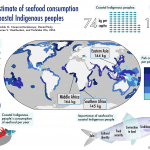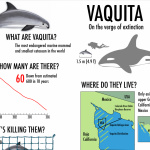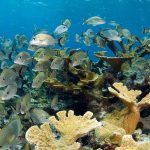by Andrés M. Cisneros-Montemayor, Nereus Program Manager & Research Associate
Throughout Latin America (and in much of the world), clear signs of overfishing and deteriorating fishing communities, together with decades of research and conservation efforts, are perhaps creating a turning point towards the widespread desire for policies to achieve sustainable fisheries. Each sector has a distinct set of responsibilities that they must be held to account for, even as we keep listening to and recognizing each other and the value that everyone brings.
This coming together of interests occurred recently at the VII Meeting of Fisheries Management Alternatives [VII Encuentro de Alternativas de Manejo Pesquero] held in Mérida, México, January 12 and 13. I was invited to attend by an international NGO, Environmental Defense Fund, with several offices throughout México and primarily engaged with finding economics-based solutions to achieve sustainable fisheries (EDF organized this meeting). This obviously means different things depending on where and who you are, and what was great about this meeting was the mix of participants, including (mainly small-scale) fishers, seafood processers and exporters, academics, managers, NGOs and government officials from all over México, as well as from Cuba, Belize, Chile and Ecuador.
In addition to having a fantastic array of discussions with a lot of people with different perspectives (and in my home country, no less), it was also a chance to listen to what others have to say about sustainability and what it means for them, and how they are trying to achieve it. One quickly reaffirms the fact that, although social, cultural, political, and ecologic contexts truly matter for deciding on the best strategies for improvement, there are also many core values shared across people from all walks of life.
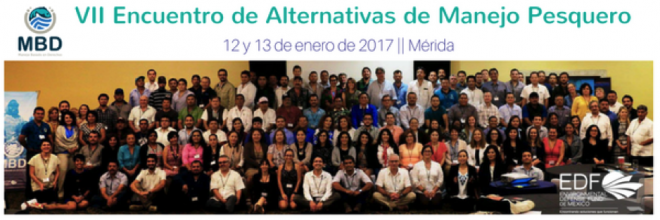
As part of my invitation to the Meeting, I was asked to moderate a panel regarding issues of fisheries monitoring and enforcement. Anyone familiar with fisheries knows that this can be a prickly issue, particularly in developing countries, and even more so when you have in the same room both fishers and the authorities charged with the task of enforcing regulations. Aside from a few scattered tensions though, the panel and subsequent discussion was overwhelming positive and really highlighted the fact that many fishing communities are ready and willing to work towards more sustainable fisheries, provided that official institutions support their efforts and uphold co-produced policies against potential cheaters. There was an amused murmur through the crowd when a participant from Cuba explained that, no, they don’t have many problems with people breaking their fishing laws.
A highlight of the Meeting for me (and I think for many others) was a panel dedicated to the role of women in fisheries. This included women fishers, fishing company owners, and researchers, and drew heartfelt comments of support from many attendees. For me personally, the key messages from the panelists were that a) women working in fisheries are just as (and sometimes better) capable of doing anything, and b) this does not mean they should be expected to sacrifice anything related to family life, a common misconception noted by the panelists. It would seem perhaps unnecessary to remark on what should not still be a discussion, but as the recent Women’s March shows, we still have a lot of work to do but are hopefully getting closer!
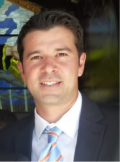
ANDRÉS CISNEROS-MONTEMAYOR, PHD, FISHERIES ECONOMICS
PROGRAM MANAGER/RESEARCH ASSOCIATE
Andrés Cisneros-Montemayor is a resource economist specializing in applied fisheries management and ecosystem services. His research touches on optimal economic policies, co-management, transboundary fisheries, ecotourism, and small-scale and Indigenous fisheries, always with a view to achieving sustainable resource use in a changing world.



